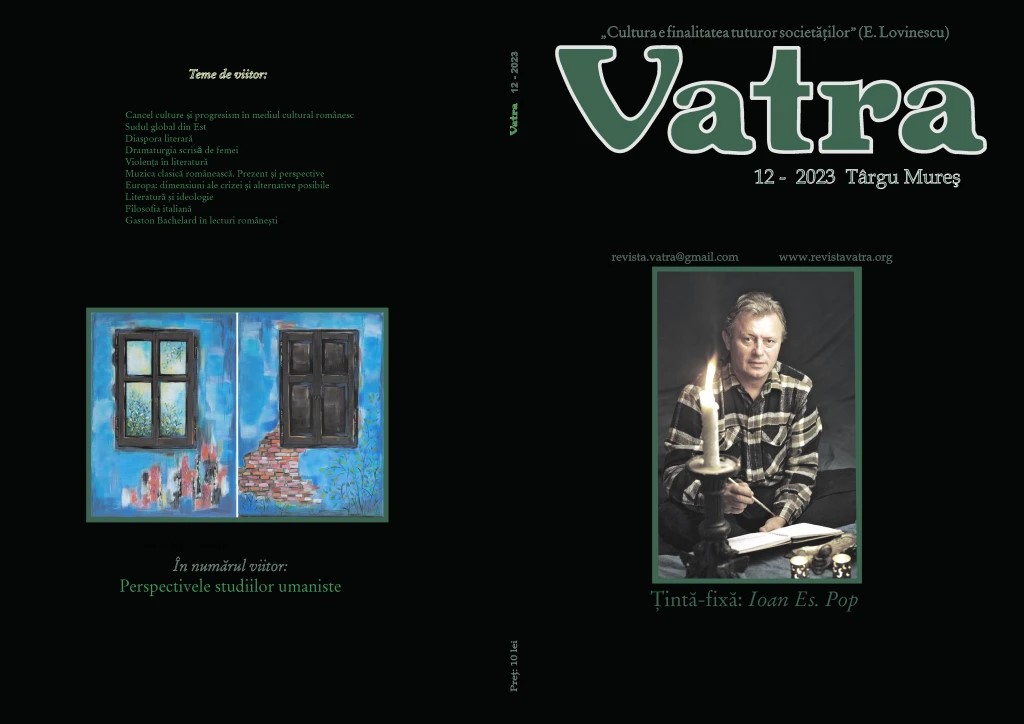
We kindly inform you that, as long as the subject affiliation of our 300.000+ articles is in progress, you might get unsufficient or no results on your third level or second level search. In this case, please broaden your search criteria.



Essay about Ioan Es. Pop by Cornel UNGUREANU - Intensitatea alienării
More...
Short essay about Ioan Es. Pop by Lucian VASILIU - Fervoare și favoare.
More...
Essay on the poetry of Ioan Es. Pop by Daniel CORBU - Un apostol al biografismului cinic
More...
An essay on the poems of Ioan Es. Pop by Octavian SOVIANY - Eposul marginalității
More...
Essay about the work of Ioan Es. Pop by Marius MIHEȚ - Ioan Es. Pop, pasivul pur
More...
An essay on the poems of Ioan Es. Pop by Nicolae COANDE - Ioan Es. Pop – Corabia beată a vieții. A morții.
More...
Essay about Ioan Es. Pop's poems by Maria-Ana TUPAN - În căutarea eului pierdut.
More...
Essay on Ioan Es. Pop's poems by Ruxandra IVĂNCESCU - Ioan Es. Pop, dincolo de mode.
More...
Essay on Ioan Es. Pop's work by Marian Victor BUCIU - Poezie pe viață și pe moarte.
More...
Essay about the Poems of Ioan Es. Pop by Iulian BOLDEA - Ieşirea din labirint.
More...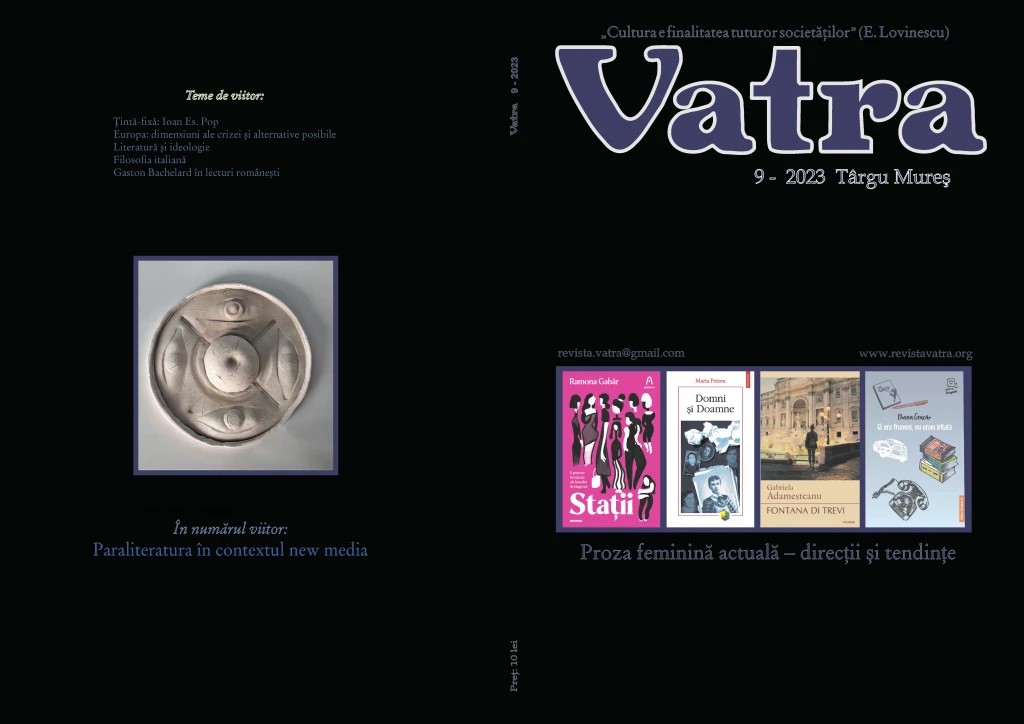

Essay on the prose of Lavinia Braniște - "Lavinia Braniște – Dicțiunea romanului nesentimental"
More...
Review of: Oanei Paler, Stadii, Grupul Editorial Rocart, 2023.
More...
REview of: Sașa Zare, Dezrădăcinare, frACTalia, București, 2022
More...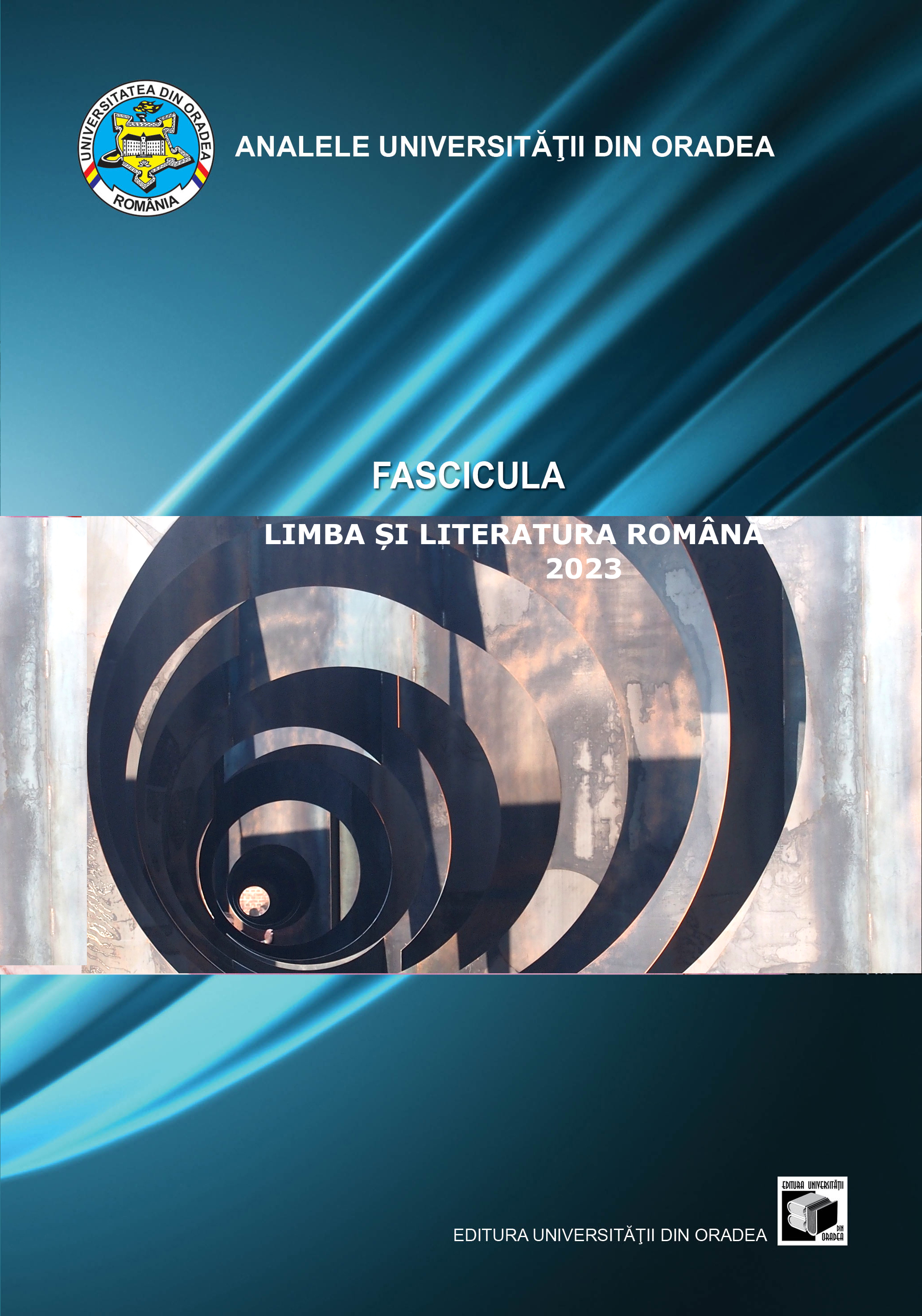
Our article aims at taking into consideration some aspects regarding the two concepts: identity and individuality, in the lyrical work of Traian Dorz – a contemporary Romanian poet, regrettably less studied, author of thousands mystical poems and of several volumes of memoires and religious meditations. We will have in view certain aspects of the textual construction in a series of poems which have as message the relation – seen from a Christian point of view – between the meaning of ascension on the path of faith and the collapse of the human condition, between the ecstatic state and the limits of the telluric, between the sacred silence of the intimacy with God and the manifestation proper to the community spirit. Beyond the simple presence of these significations, such poems concentrate, in their essence, theological truths and confessions of faith, highlighting the author’s artistic belief, his conception about life and Divinity.
More...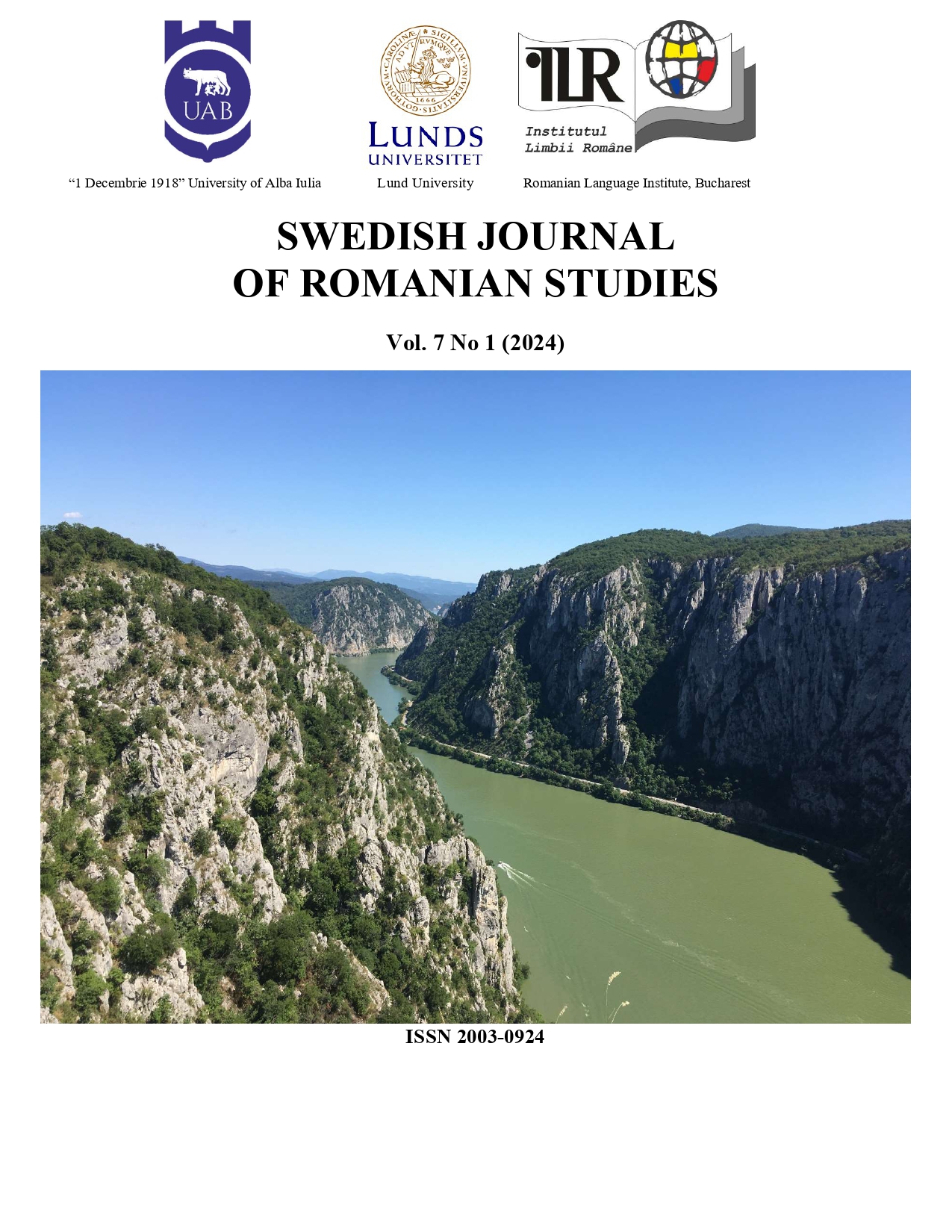
In the pages of this article, we will bring together a series of interpretations of Eminescu’s writings that prove the influence of the mysticism of Kabbalah on the great Romanian author. The understanding of Eminescu’s poems through the lens of Kabbalah is a perspective adopted by several scholars. For example, starting with G. Călinescu, Hyperion (from the poem “Luceafărul”) was compared to a sefirah. Since the influences of the Far East seem to be much more significant in the literary context in question, we will start from them and, later, correlate them with elements from the ideological background of Near Eastern mysticism. We will also point out certain aspects of the symbolism of the elements and, above all, of water – which is, ultimately, an emblem of the primordial space from which existence is born. Thus, starting from the perspective of Gaston Bachelard’s poetics of the elements, we will investigate the correlation with the mysterious Ain Soph of Kabbalah.
More...
The present research aims at understanding some of Emil Cioran's spiritual positions in several of his writings. The tools of analysis are the philosophical and cultural approaches, but also elements of positivist determinism, such as climate, disease, etc. The oeuvres studied belong to different periods of creation. The working hypothesis is that the essayist remained a lifelong thinker oscillating between the extreme right and the extreme left, as well as a stubborn and metaphysically rejected progressive thinker, but always obsessed with metaphysics and the transcendent. Among the commonplaces of Cioran's artistic and geopolitical critique of reality and the real are narcissism, humor, victimhood and diatribe. His work is underpinned by intuition and Utopian projection and much less by logic. Cioran becomes dangerous if treated as a programmatic philosopher, but otherwise he is a spectacular source of artistic and literary-philosophical insights; an experimental essayist, dangerous as an influencer. The fate of his thinking has been heavily marked by the ideologies of his interpreters.
More...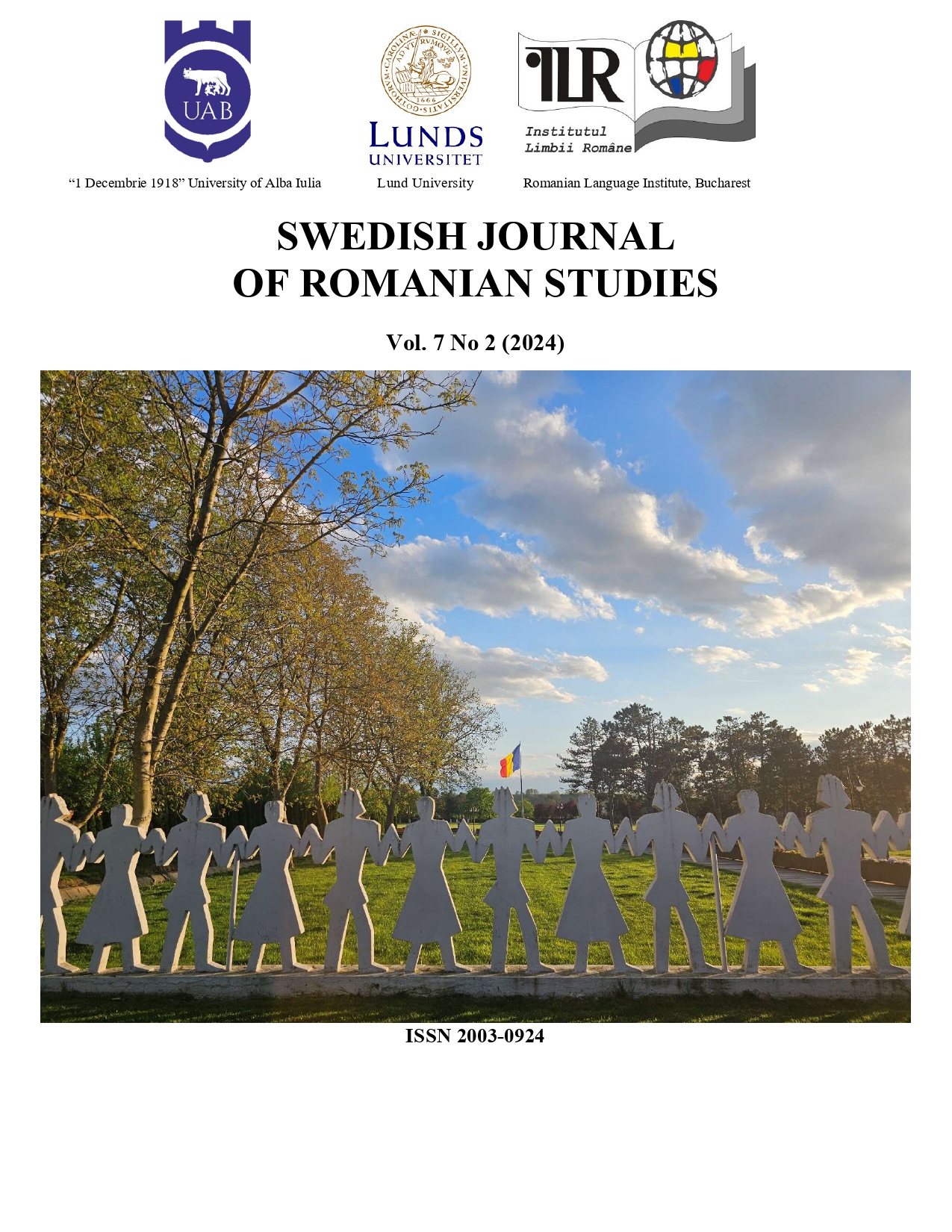
The novella Cînd Nu mai ai pe Cine să Îmbrățișezi [When you have no one to hug], by Răzvan Brudiu, offers a wild and isolated image of a hamlet in the Apuseni Mountains, where old Joseph lives in solitude, strengthened by the power of faith, waiting for the last road to eternity. In the volume we can identify a dialogical construction on the waiting theme, under the sign of silence. If Joseph speaks, it is to banish loneliness, as rarely does anyone cross his threshold, so that in the narrative ego his words and gestures provoke deep meditations on existence. The profile of the central hero is gradually built up through simplicity, modesty, and natural gestures, contrasting with the erudition of the theologian who constantly feels the need to refer to various passages in the Bible, to church events and services, to quotations from the writings of saints or famous writers, etc. Two different worlds emerge from the dialogue between the two protagonists, that of the city, where life is full of daily hassles and worries, where people judge things with a ‘correct’ mind, and the world of old Joseph, for whom time has already become ‘eternity’. These worlds, symbolically confronted, generate meaningful images. The 90-year-old man serenely looks towards death, aware that he does not have much more to expect from life and wishing to be reunited with his wife. He leads a simple life, but his prayer, uttered without worrying about tomorrow, generates in his heart love and longing for the Creator. For him, the end of the world is, in fact, the meeting with God, and everything he does since his wife’s death is a preparation for reaching the final goal, thus becoming an example for everyone who believes in eternal life.
More...